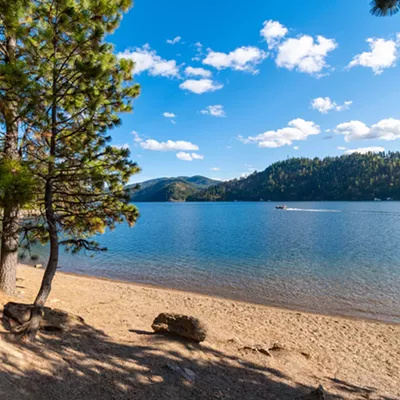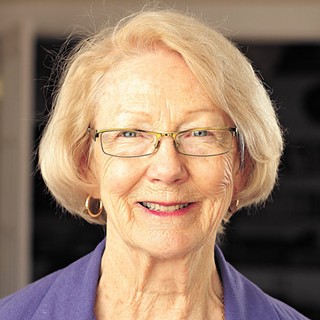Within its rugged borders, Idaho contains a glorious collection of wild waters. Here in the Panhandle, we have mountains that catch and hold the snow, which melts and becomes gushing rivers every spring. The torrents rush down the map to the Columbia River where the waters roll on to the great Pacific Ocean.
The Idaho Legislature, in its just-concluded session, unanimously passed a resolution celebrating the 50th anniversary of the passage of the national Wild and Scenic Rivers Act, which both honors and protects the designated rivers, chosen because of their natural beauty and relatively natural state.
Idaho is the appropriate state to acknowledge this anniversary. In 1968, a bipartisan group of Idaho's national legislators participated in the effort to identify and to protect these special waters. Democratic Sen. Frank Church, who at that point represented Idaho in the U.S. Senate for half of his eventual 24 years, was the principal author, sponsor and floor manager of the Wild and Scenic Rivers legislation.
Republican representatives at the time, James McClure and George Hansen, carried the measure in the U.S. House of Representatives. The two were also acknowledged in this year's resolution, co-sponsored in the Idaho Senate by Democratic leader Sen. Michelle Stennett and Republican Sen. Dan Johnston.
In these politically divided days, it is refreshing to honor and repeat such bipartisanship in action. I compliment the Idaho legislators for pausing to appreciate this historic act. Their action also reflects how Idahoans feel about water. Here in the Panhandle, we appreciate our abundance of water in which we play and on which we boat. In Southern Idaho where the potatoes grow, water is for nourishing the crops — work not play. Both are essential.
My husband Scott and I discovered Idaho at the same time Frank Church was first running for his U.S. Senate seat. When we first observed Frank Church, he was in a primary battle with Glen Taylor, who had won the moniker "Singing Cowboy" during his four years in the Senate (1944-48).
At a Democratic rally in Coeur d'Alene City Park in the summer of 1956, Scott and I listened to Glen Taylor croon some cowboy tunes and then ask the audience to vote for him so he could afford to send his son to medical school. Needless to say, we lined up behind Frank Church. Church defeated Taylor by a scant 170 votes and went on to defeat the incumbent Republican, Herman Welker, in the general election.
As senator, Frank Church didn't start out as a conservationist. In 1957 he strongly supported the concept of building a 700-foot-high dam in Hells Canyon. Church reversed his position early in his Senate days and soon was an acknowledged conservationist, a leader in the "save the Earth" mood of the '60s and '70s.
The Wilderness Act percolated for nine years before it passed Congress in 1964, carried in the Senate by Frank Church. By then, the wilderness had become a national cause, and the House of Representatives passed the bill with only one dissenting vote.
The Wild and Scenic River bill followed, partly in recognition that dam building had become a threat to free-flowing water everywhere, but especially in the mountainous West. So rivers designated wild and scenic were protected from the sprawl of dams.
Woody Guthrie wrote the song "Roll on Columbia" in 1941, just before the Grand Coulee Dam was dedicated. It glorified the power that "turned darkness to dawn." World War II did require that power to build warship and airplanes.
Life is cyclical. The dam-building years of the 1900s have been followed by a new engineering challenge. Deconstruction of dams is now a realistic part of the riverscape. Solar and wind power have become attractive alternative sources of energy to turn darkness to dawn. Concern for endangered salmon and the health of the river waters are serious considerations.
But that's an argument for another time. It's important now to appreciate the wisdom of the decision 50 years ago to save free-flowing rivers in their natural state.
Sen. Church cast the blame for losing his election in 1980 on his environmental positions. But his widow, Bethine, never swayed from her advocacy of wilderness protection. She was always a partner in Frank's political career. Their son, Forrest Church, in his biography of his dad, Father and Son, related the story of how a cowboy protested the River of No Return Wilderness by riding his horse through the door of the hearing room and out the door. After the rider disappeared, a reporter asked Bethine what she thought of the display. Her answer was, "I thought that was a right handsome horse."
Frank and Bethine were the stuff of Idaho greatness, never to be forgotten. Let the wild waters flow. ♦

















